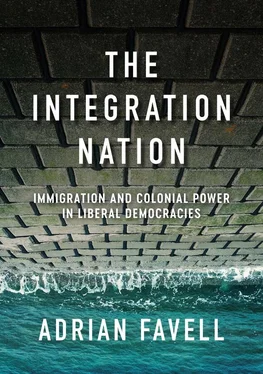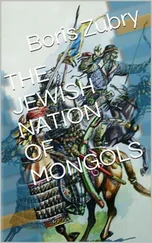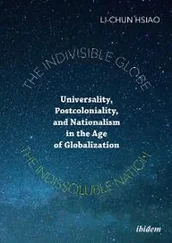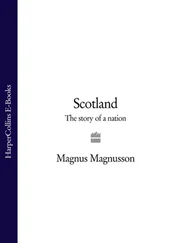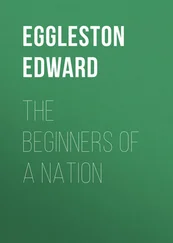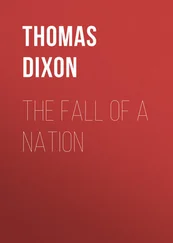For further information on Polity, visit our website: politybooks.com
For Molly
Thanks and Acknowledgements
I am very grateful to Polity Press, particularly my editor Jonathan Skerrett, for the invitation to write this book, returning me to my core interest in immigrant integration and nationalism in the light of the new waves of critical and activist work on migration in recent years. It has been an exemplary editorial and production experience.
As always, it is impossible to thank everyone who has helped me think through and articulate these ideas, but I owe a special word of gratitude to friends and colleagues at the University of Leeds, particularly Bobby Sayyid and Ipek Demir for their attentive and encouraging reading of the manuscript; to Tesfalem Yemane and Kheira Arrouche for the brilliant work they are doing; to Li Sun for our work on China; and to members of the Leeds Migration Research Network, the Bauman Institute and the Northern Exposure project, especially Roxana Barbulescu, Albert Varela, Andrew Wallace, Paul Bagguley and Yasmin Hussain. I am grateful always for my precious connection to the Centre d’études européennes et de politique comparée at Sciences Po, Paris, and its fabulous équipe . Final work on the manuscript was completed as a fellow of the Wissenschaftskolleg zu Berlin, 2021–2022.
Thanks are also due to many other scholars along the way, in particular in the writing of this book: to Bridget Anderson, Christina Barwick, Michaela Benson, Elizabeth Bernstein, Gurminder Bhambra, Hassan Bousetta, Rogers Brubaker, Claire Colomb, Maurice Crul, Juan Díez Medrano, Thomas Faist, Glenda Garelli, Jan Grzymski, Virginie Guiraudon, Zhonghua Guo, James Hampshire, Rubén Hernández León, Simon Hix, Jim Hollifield, Hussein Kassim, Michael Keith, Omar Khan, Dimitry Kochenov, Eleonor Kofman, Sarah Kunz, Jean-Michel Lafleur, Michèle Lamont, Patrick Le Galès, Frans Lelie, Peggy Levitt, Gracia Liu-Farrer, Kesi Mahendran, William Marotti, Marco Martiniello, Rahsaan Maxwell, Anne McNevin, Tariq Modood, Kalypso Nikolaidis, Varun Oberoi, Bhikhu Parekh, Karen Phalet, Parvati Raghuram, Ettore Recchi, Mirna Safi, Mike Savage, Willem Schinkel, Peter Scholten, Hagen Schulz-Forberg, Ayelet Shachar, Patrick Simon, John Solomos, Yasemin Soysal, Kristin Surak, Marc Swyngedouw, Milada Vachudova, Sivamohan Valluvan, Steve Vertovec, Tomasso Vitale, Anja Weiss, Dan Wincott, Gökçe Yurdakul and Ricard Zapata-Barrero.
It was Ralph Grillo, a long time ago, who first suggested I write a book like this. Comments on some of my earlier work by Nina Glick Schiller and Saskia Sassen also inspired me. I was extremely grateful for the close readings given at a late stage by Dirk Jacobs, Jon Fox and Molly Geidel. Big thanks to Paul Statham, Nando Sigona, Raj Patel, Janine Dahinden, Giacomo Orsini and Umut Korkut, and to Marta Kindler and Pawel Kaczmarczyk, for opportunities to fully develop the ideas presented here; and to Roger Waldinger, whose work and support have been such an inspiration over many years.
The opening scene of Gillo Pontecorvo’s film La Bataille d’Alger (1966). The Colonel Mathieu joins his soldiers in a room where they have a captive Algerian man who has been tortured. They have dressed him as a French soldier and are going to take him to the casbah where he will reveal to them where the leader of the Algerian Liberation Front is hiding. Mathieu tells them to give him a French soldier’s hat. The soldier next to the Algerian smiles broadly and shoves the hat on his head.
‘ Intégration!! ’, the soldier laughs . . .
[To the soldier] ‘ Fais-pas l’idiot! ’ [Don’t be an idiot!], says the Colonel.
The Algerian starts crying, then suddenly desperate, runs towards the window, wailing . . .
‘ NON!!! . . .’
The soldiers grab him, tell him to stay calm, or they’ll start on him again. They push him towards the door.
The notion of ‘immigrant integration’ is found everywhere as a progressive concept – among students, scholars, research funders, policy makers, politicians, journalists, lawyers, social workers and many others concerned with how societies should respond to international migration and include new members on fair and equal terms. ‘Integration’ is widely accepted as the most encompassing term to refer to both the process and end state by which highly globalized societies imagine they will restore unity and cohesion after large-scale immigration and the diversity it brings. In Western Europe, where the term has been most elaborated, it has largely eclipsed discussions of multiculturalism and is seen as a more progressive goal than assimilation. It appears to have more sociological scope and weight than close synonyms such as social cohesion, inclusion, incorporation or participation. Indeed, integration has a kind of aura as a default concept in forward-looking thinking about the consequences of migration and the diversification of society. It is used at once to signal the necessary adaptation of diverse cultures to dominant western norms and as an idealized image of intercultural dialogue that will be transformative on both sides. And despite its pervasive and often confusing range of use, there are surprisingly few sustained discussions of its conceptual roots and theoretical implications, although frequent attempts are made by scholars to propose ideal-type ‘models’ or ‘indicators’ of integration.
The invocation of intégration in the shocking first scene from Pontecorvo’s La Bataille d’Alger , recounted above, should underline how integration is and always was a fundamentally colonial term. As I will argue, it is embedded in a modernist development paradigm which assumes both a trajectory towards a certain kind of individualist citizenship and the dominant relation of ‘the West to the Rest’. At heart, it is concerned with the rearguard perpetuation of ongoing nation-state building on the western model in an otherwise globalizing world: of re-fashioning a sovereign, bounded social order from conflict and diversity as a form of modern progress. This is the power of the ‘integration nation’. As shrinking metropolitan nation-states came to terms with the end of empire, and the absorption of populations inherited as their post-colonial legacy of global domination, they turned to the idea of ‘integration’ as a means of re-imagining their ongoing civilizational mission in the face of global diversity. So when progressive scholars and policy makers ingenuously propose integration as the reasonable middle way between conservative cultural conformism and radical celebrations of cultural hybridity and diaspora, they are buying into and reproducing a colonial world view that is also deeply nationalist in its implications.
As a work in political theory, The Integration Nation sketches the core component of what may be thought of as a political demography of liberal democracy (see also Weiner and Teitelbaum 2001 and Goldstone, Kaufmann and Duffy Toft 2011 for contrasting uses of this term). That is, how modern advanced nation-states classify and enumerate populations which are inherently mobile and diverse into ‘legible’ legal and institutional distinctions: of ‘citizens’ and ‘migrants’, ‘nationals’ and ‘aliens’, ‘majorities’ and ‘minorities’. They do this in order to constitute their own pastoral and governmental powers, and thereby sustain a global order of territorialized and bordered national populations founded on massive inequalities between nations and their members (Milanovic 2005; Shachar 2009) – inequalities that still substantially reflect the racialized cultural hierarchies of colonialism and empire (Boatcă 2015). At the heart of this construction lies what can be thought of as the linear conception of population movement, in which a select few designated but heavily symbolic ‘immigrants’ from poorer countries pass along a process of migration, border entry, settlement, integration and (hence) the attainment of full moral and political citizenship in an affluent modern western society, as proof of the cohesive and developmental powers of a socially ‘diverse’, ‘inclusive’ and ‘sovereign’ modern nation-state ‘society’. Along the way, the differentiation at work here ensures others are excluded or marginalized by the selective trajectory imagined in the image of the successful ‘immigrant’. Meanwhile, as we will see, the heavy imposition of ‘integration’ as the unique symbolic burden of disadvantaged ‘ethnic minorities’ and ‘immigrants’ also enables the elites of these same societies to increasingly float free of the same obligations as global free movers.
Читать дальше
